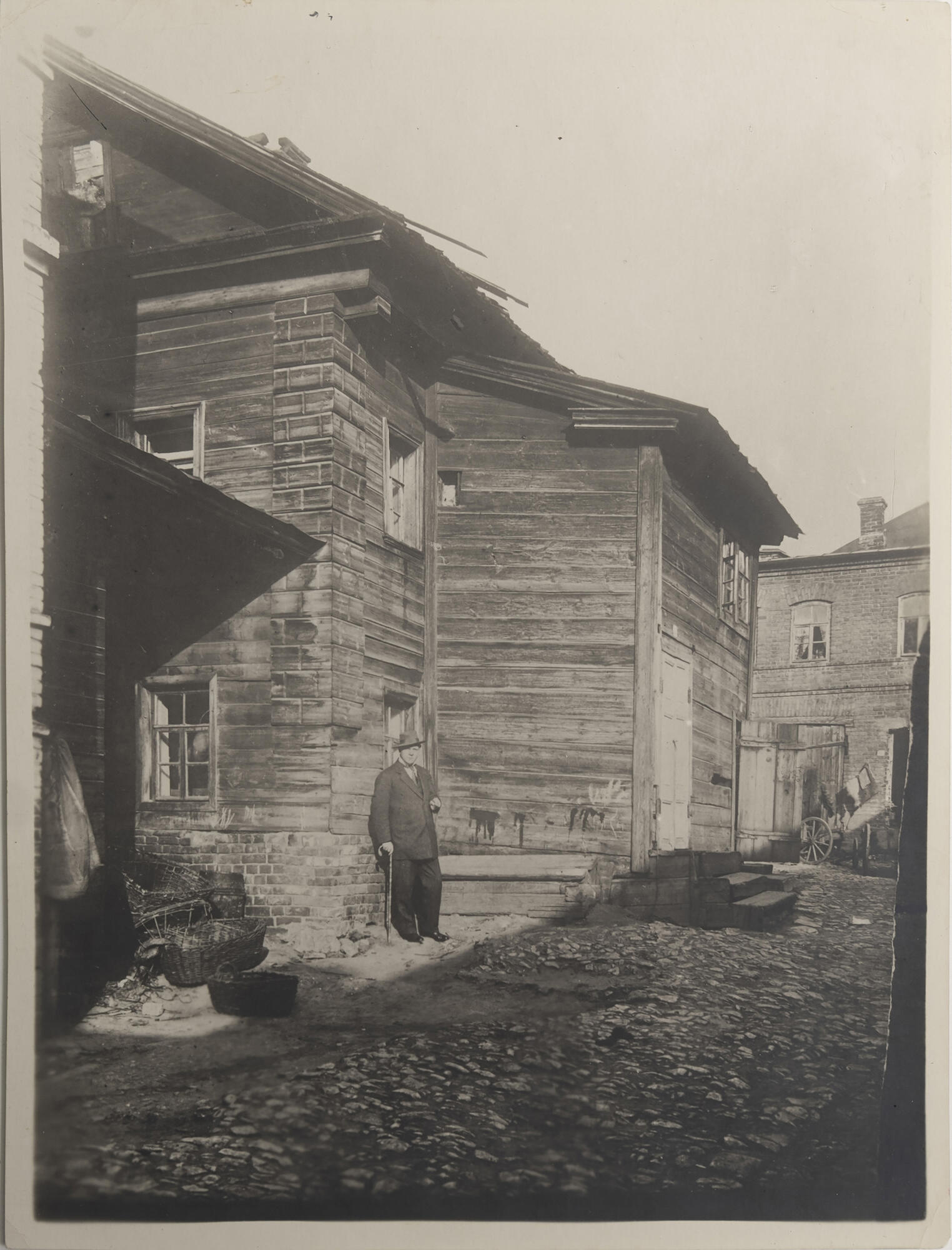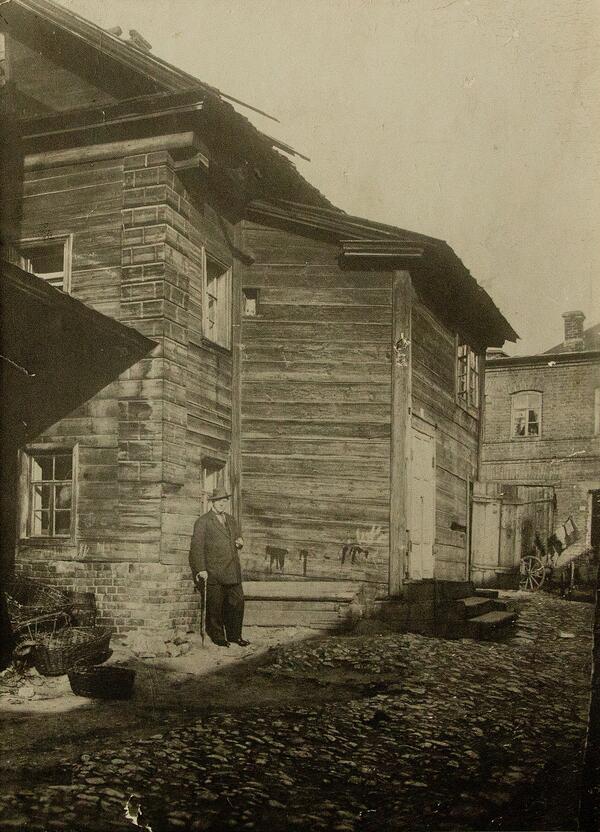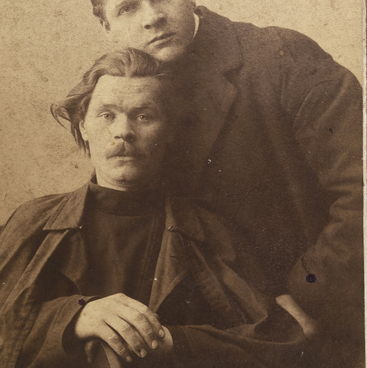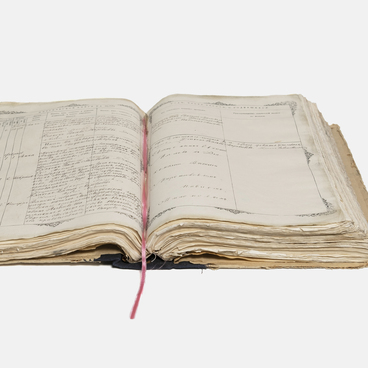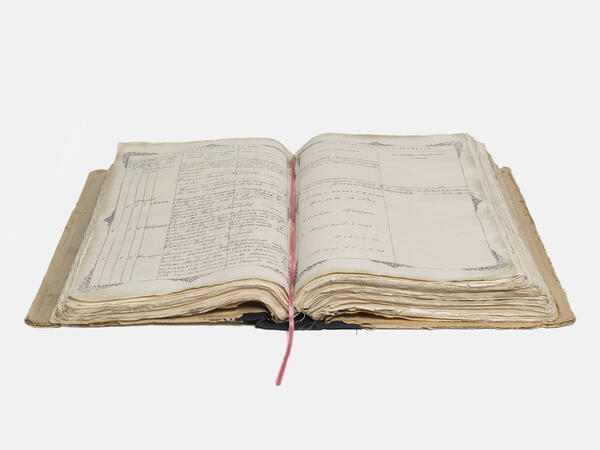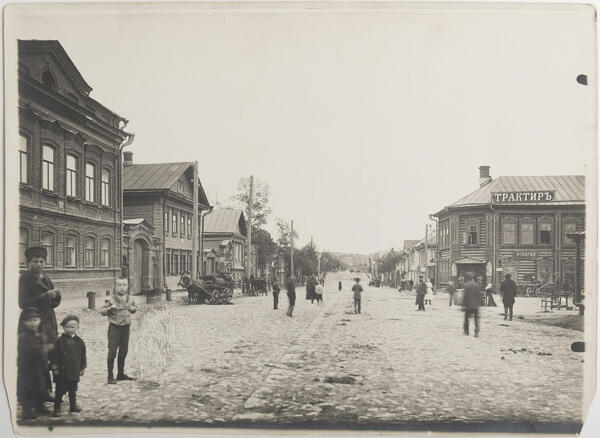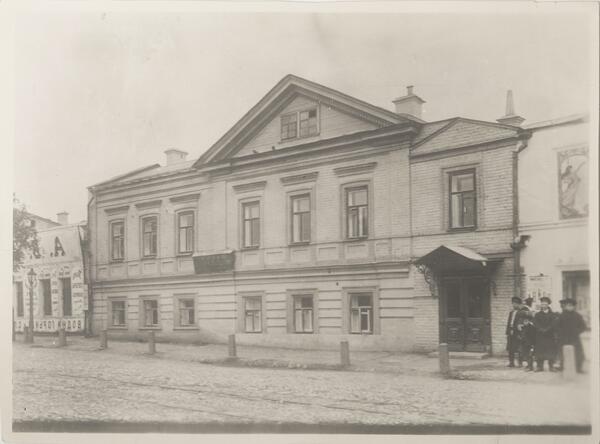The photo shows Feodor Chaliapin, the world-famous performer and soloist of the Imperial Theaters, standing against the background of a wooden outbuilding where he was born. Next to it is a stone tenement building that belonged to the merchant and Old Believer Pavel Lisitsyn. The house was at the end of Rybnoryadskaya Street in the center of Kazan, and its current address is 10 Pushkin Street.
Feodor Chaliapin’s parents came from Vyatka Uyezd peasants. When harvests were bad, they relocated to work in the city, where they had to pay taxes and obtain temporary documents. The singer’s father, Ivan Yakovlevich Chaliapin, worked as an assistant parish clerk for 12 rubles a month and later got a job at the zemstvo (the local government). The whole family had to live on his modest salary and struggled to make ends meet.
The Chaliapins had other children before Feodor, but they died in infancy, presumably because of labor complications. When she was expecting her next child, Yevdokia Chaliapina decided to turn to the services of an experienced midwife well in advance. The latter lived in Sobachny Lane in Sukonnaya Sloboda, not far from the merchant Lisitsyn’s house. There, in a wooden outbuilding, Feodor Chaliapin was born without any complications on February 1, 1873. The next day, the boy was baptized at the Church of the Epiphany and taken to the village of Klyuchi. Feodor would spend his early childhood years in the village of Ometyevo, where his family would soon move.
When Feodor was almost five years old, the family returned to Sukonnaya Sloboda and settled on the first floor of a stone house. The Chaliapins struggled to make ends meet just with the father’s salary, so Chaliapin’s mother took every opportunity to earn money by washing and sewing clothes, baking pies for sale, and washing floors. His mother’s kindness and her old legends and songs made a lasting impact on Chaliapin.
By the end of the 19th century, Kazan had become a major provincial city on the Volga with a population of 100,000 people. Dwellings were mostly made of wood, and the city was often ravaged by fires. Kazan had no central plumbing and experienced a shortage of clean water. Few streets were paved, and in the evenings the city was plunged into darkness: gas lamps appeared a year after Feodor was born but were installed only in the main streets.
Rybnoryadskaya Square was near the house where Feodor Chaliapin was born. On market days, there were dozens of peasant carts, and mountains of barrels of fish were piling, hindering the pedestrians and making the entire neighborhood smell like fish. When it rained, the square turned into a huge muddy lake, and people waded through it. As a young man, Chaliapin dreamed of getting away from Sukonnaya Sloboda, but as he got older, he felt nostalgia for the places of his youth and visited Kazan whenever he could.
The Alexey Gorky and Feodor Chaliapin Museum presents a copy of the picture created in 1987.
